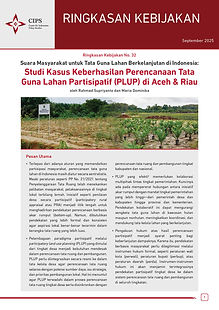Valorizing Research and Evidence for Social Inclusion in Indonesia: A Situational Analysis of the Current Information Uptake in Education Policymaking

Penulis

Center for Indonesian Policy Studies

UNESCO
Education is crucial for reducing inequality and breaking the cycle of poverty. The importance of education is recognized through its inclusion as the United Nations’ fourth sustainable development goal (SDG), “ensuring inclusive and equitable quality education and promoting lifelong learning opportunities for all”. In the context of this goal, inclusive refers to a learning environment without barriers limiting the presence, participation, or achievement of learners and equitable means that the education of all learners is seen as having equal importance.
UNESCO cooperated with the Center for Indonesian Policy Studies (CIPS) in a project on Valorizing Research and Evidence for Social Inclusion. This project, concerning the valorization of evidence in inclusive social development in Southeast Asia, is part of UNESCO’s Inclusive Policy Lab work in the ‘Management of Social Transformations’ (MOST) Programme framework. The objective of the Lab is to support UNESCO Member States as they advance their social policy agendas by making better use of scientific information and knowledge—valorization refers to this process. The Lab aims to improve the South-South sharing of inclusive policy knowledge and practice, increasing availability of policy knowledge and advice in the region, and strengthening social data literacy among policy practitioners and other relevant stakeholders.













































